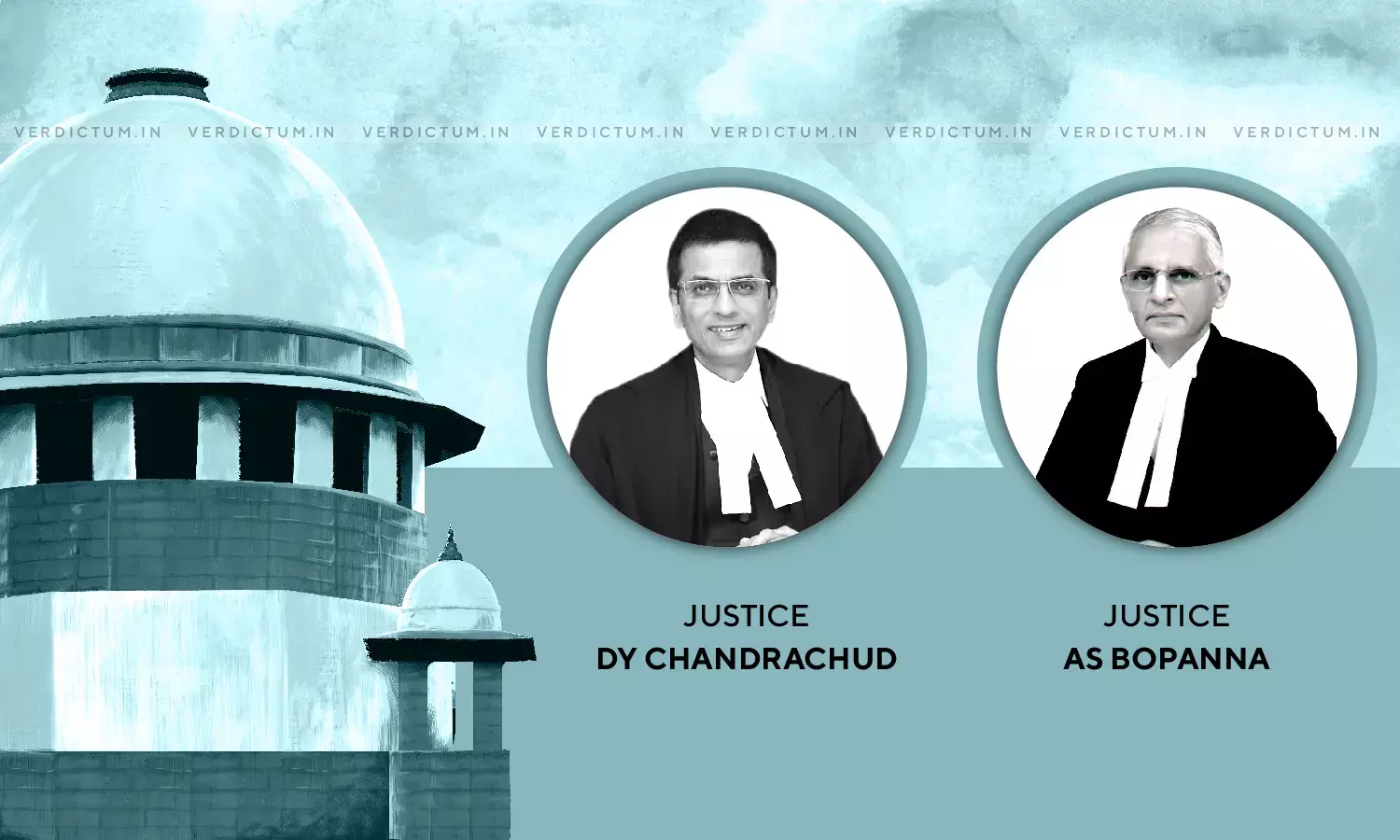Universities Should Conduct The Process Of Affiliation With Scrupulous Care To Ensure That Interest Of Students Is Not Imperilled: SC
The Supreme Court by its judgment rendered on 18th November stayed the interim orders passed by the Telangana High Court in a matter related to Jawaharlal Nehru Technological University (JNTU) seeking approval of State Government before granting affiliation to new courses in existing institutions.
A two-judge Bench of Justice D. Y. Chandrachud and Justice A. S. Bopanna heard the petition that was filed against the interim order passed by the High Court.
Senior Counsel Mr. C S Vaidyanathan appeared for JNTU while Senior Counsel Mr. S Niranjan Reddy appeared for the Institutions.
The High Court in its order had held that the action of JNTU in seeking approval of the State Government before granting affiliation to new courses in existing institutions, which had already been approved by the All India Council for Technical Education (AICTE) was contrary to the order of the SC in the case of Jaya Gokul Education Trust v Commissioner & Secretary to Govt Higher Education Department, Thiruvananthapuram, Kerala State and Another. Thus, the High Court directed JNTU to notify the institutions during the second phase of counseling thereby allowing students to be admitted to the courses.
JNTU contended before the Supreme Court that the regulations of JNTU expressly contemplate a role for the State Government and the purpose of seeking a NOC of the State is to ensure that it can duly consider the needs of the area concerned and whether the proposed course or, as the case may be, additional intake, would be consistent with the overall policy of the State.
It was further argued that it was not appropriate for the HC to pass interim orders for counseling of students, particularly when neither the NOC of the State Government had been granted nor the process of affiliation was completed.
While the Respondents contended that institutions do not dispute the statutory authority of JNTU to conduct the affiliation process, but once approval was granted by AICTE, JNTU's further recourse to the State Government for its NOC would be contrary to the Central legislation by which AICTE is governed.
The Apex Court placed reliance on the case of Jaya Gokul Education Trust (supra) and Jawaharlal Nehru Technological University Registrar v Sangam Laxmi Bai Vidyapeet and Others and held that the permission of the State Government is required for opening new courses.
The Court further held that it was erroneous for the High Court to hold that it was not permissible for the State Government to frame a policy and that JNTU was bound to issue its NOC.
Additionally, the Court placed reliance on the precedent A P J Abdul Kalam Technological University and Another v Jai Bharath College of Management and Engineering Technology and Others, where the importance of the role which is played by the State and by the affiliating University has again been emphasized and it has been noted that it would be open to the State Government to even prescribe standards higher than those recognized by AICTE.
The Court also referred to the Jaya Gokul Education Trust case where it was held that after the advent of the AICTE Regulations, applications for extension of approval are processed online on the basis of self-disclosure. Hence, it is all the more necessary for the Universities to conduct the process of affiliation with scrupulous care in order to ensure that the interest of students is not imperilled.
The Bench further opined, "When the High Court passed its interim orders, neither had the State granted its NOC nor had JNTU granted affiliation. During the pendency of the proceedings, the Higher Education (TE) Department of the Government of Telangana has granted its NOC on 1 November 2021. The process of affiliation is yet to be completed by JNTU." In this context, the Court further observed -
"In this backdrop, the High Court ought to have issued an interim direction so as to allow the institutions concerned to participate in the second round of counseling. Issuing such a judicial fiat even before the process contemplated by the Regulations is complete is likely to prejudice the students, often, in an irretrievable manner, in the event that the affiliation is eventually denied."
The Court noted that the interim orders of the High Court could not be sustained.
Furthermore, the Court noted the contention of Mr. Vaidyanath that JNTU will conduct the process of affiliation within a period of ten days, in this regard, the Court added -
"Once the process of affiliation is complete, the High Court can be duly apprised of the result, in relation to each institution which has applied for permission. Meantime, the interim order would remain stayed, to abide by the final result of the affiliation process."
Accordingly, the Court disposed of the appeal and stayed the operation of the interim orders of the High Court.
Click here to read/download the Judgment



